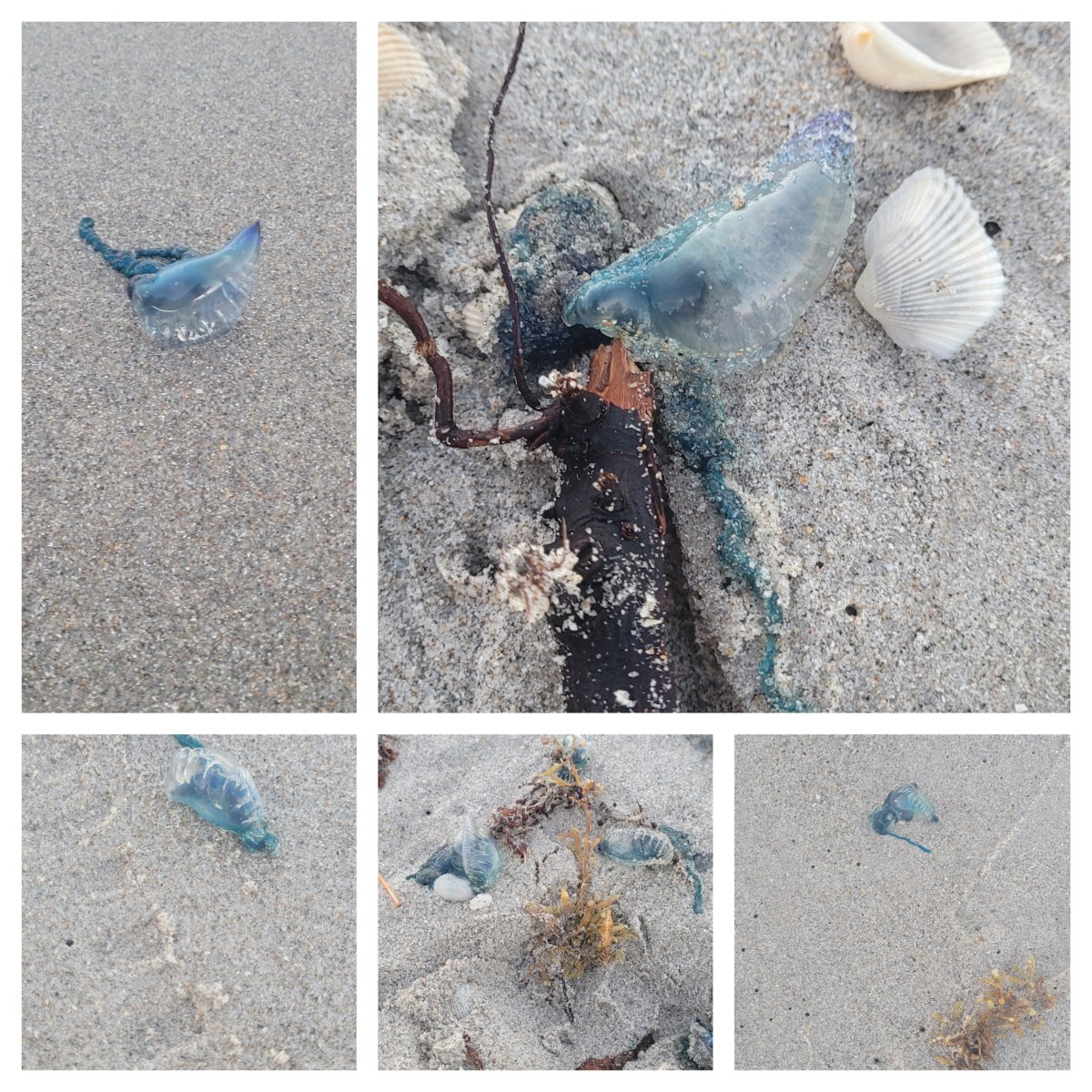Swarms of highly venomous sea creatures have washed up on a beach in Florida.
The blue alien-like creatures, called Portuguese man o' war, were found along Indialantic Beach in Brevard County, Florida, about 3 miles away from Melbourne Beach. It is not uncommon to see these creatures along Florida's coastline but seeing them wash up in such numbers is more unusual.
"There were a lot," Florida resident Victoria Larkin told Newsweek. "Every couple of feet you walked there were bunches of five to 10. From what my boyfriend and I saw, there had to be at least 100. We only walked about 1 mile, however people we talked to said they went on for a lot longer."

"I've seen Portuguese man of war on the beach before, but not to a scale like this," Larkin said. "The other ones I've seen have been much bigger and only the one, never a big group like this. We would see them very rarely when I was a kid growing up."
Portuguese man o' war are often confused for jellyfish due to their long strands of tentacles, but they actually belong to a group of the marine animals called siphonophores. Siphonophores are unusual because each individual is not technically a single organism.
Rather, they consist of a colony of genetically identical clones, each of which is specialized to carry out a specific function. The National Ocean Service (NOAA) splits these into four distinct categories: floating, capturing prey, feeding and reproducing.
"When we saw them, they were definitely dead," Larkin said. "They were mostly sitting where the high tide marks in little groups, usually sitting around other shells and debris. Really tangled up in everything."
Portuguese Man O' War have a distinctive, sail-shaped float—which is said to resemble 18th-century Portuguese warships, hence their name—that allows them to float along on the ocean currents, like small waterborne balloons. These floats can be up to 6 inches tall, although Larkin said that the largest floats she saw were only about 2 inches.
"Most were within an inch and half lengthwise."
Underneath the waterline, these floating air sacs join with long strands of colorful tentacles and polyps that can grow to over 100 feet. It is these tentacles that are armed with microscopic stinging capsules, known as nematocysts, which are loaded which barbed tubes of venom.

The sting is rarely deadly to people, but the pain is said to be excruciating and can last for hours. One Twitter user described the pain as "kind of like hovering your hand above a candle but not being able to move it away."
Even after these creatures have washed ashore, they can still pack a powerful punch due to the venom in their tentacles. "My family raised us going to the beach and camping and it was drilled in our heads not to touch stuff like that," Larkin said. "We were taught to respect the wildlife and that if it's dead you don't touch because you could get sick from it.
"Also watching three frat guys cry because they used a jelly as a hacky sack during spring break really serves as great reminder for the rest of your life to not touch them."
It is unclear why so many of these creatures have washed up along Florida's shores, but it is likely due to a cold front that passed through the region in the days before the sightings. "We saw these on January 30," Larkin said. "Florida just had a cold front come through a couple days prior. It really kicked up the waves and churned the ocean up."
Gerry Falconer, a member of the Miami Beach Ocean Rescue, previously told CBS News that the weather at this time of year made Portuguese man o' war sightings more likely. "During the winter month, predominately November through March, we have what's called 'man-O-war season,' when the wind blows from the ocean to the land, it blows them in from the ocean," he said.
If you see one of these creatures on a beach, it is important that you do not touch them as they can still sting even after they are dead. Instead, alert the nearest lifeguard or beach authority.
Do you have an animal or nature story to share with Newsweek? Do you have a question about Portuguese Man O' War? Let us know via science@newsweek.com.
Uncommon Knowledge
Newsweek is committed to challenging conventional wisdom and finding connections in the search for common ground.
Newsweek is committed to challenging conventional wisdom and finding connections in the search for common ground.
About the writer
Pandora Dewan is a Senior Science Reporter at Newsweek based in London, UK. Her focus is reporting on science, health ... Read more





